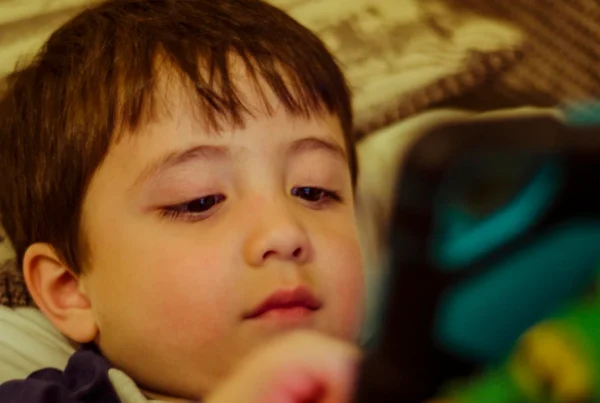“Time management, at its most basic level, is the ability to delay gratification,” says Ellen Dietrick, a Massachusetts-based preschool director, in her interview with Scholastic.
In a world filled with constant notifications, distractions, and the allure of instant gratification, teaching our children the art of managing time becomes increasingly vital. It’s not just about structuring their day but instilling in them the wisdom to make conscious choices about how they spend their time. As Dietrick points out, delaying gratification is at the core of effective time management.
As parents, guiding our children in this aspect is a gift that transcends generations, equipping them with the skills needed to navigate life’s challenges and opportunities. In this guide, we’ll dive into five practical strategies, complete with biblical insights, on how to teach time management and instill the value of time management in their children’s hearts and minds.
5 Practical Ways on How to Teach Time Management to Your Kids
Transitioning to practical methods for teaching time management to kids involves implementing effective and engaging strategies. By incorporating activities tailored to their age and interests, parents can effectively instill valuable time management skills while making learning enjoyable for their children. These strategies range from setting achievable goals and creating visual schedules to introducing time management games and incorporating regular check-ins to assess progress.
Through these interactive approaches, children learn the importance of prioritizing tasks and managing their time effectively and develop a sense of responsibility and self-discipline that will serve them well throughout their lives. Let’s delve into these practical methods and explore how they can be seamlessly integrated into everyday routines to nurture a lifelong habit of effective time management in our children.
1. Teaching Kids the Importance of Time Management
Before teaching our kids how to manage time better, let’s teach them why it’s important. Time is a precious and finite resource. When we help children understand that time is a valuable currency, we empower them to make intentional choices about how they spend each moment.
Time, once gone, cannot be reclaimed, making it crucial to use it wisely. Psalms 90:12 states, “Teach us to number our days, that we may gain a heart of wisdom.” This verse conveys that time is a precious gift from God, and our responsibility is to use it wisely.
Through this understanding, children can understand the importance of managing their time effectively to fulfill their responsibilities, pursue their passions, and nurture relationships. Introducing this perspective early on lays the foundation for a mindful and purposeful approach to time management skills.
2. Establish Priorities
Assist your children in identifying and prioritizing their tasks based on importance. You can do this by teaching them to discern between urgent and non-urgent responsibilities, helping them gain the ability to make informed decisions on how to spend their time wisely. This skill enhances their time management abilities and instills a sense of responsibility and foresight, preparing them for the challenges they may encounter as they grow.
As mentioned in Ecclesiastes 3:1-8, the Bible emphasizes that there is a time for everything under the sun. This perspective can help empower your children to discern tasks based on their goals, impacts, and urgency. This skill will help your children prioritize choices that follow God’s will.
For example, say it’s a Monday, and they have homework due on Tuesday and a project due on Friday. With this scenario, teach them to prioritize the homework due tomorrow and start doing little tasks for the project. This type of practice teaches them to know the urgency of each task and how to break big tasks into small pieces.
 3. Implement Time Blocks and Use Visual Cues
3. Implement Time Blocks and Use Visual Cues
Children naturally gravitate towards bright visual cues, making schedules presented with pictures, icons, or even physical objects particularly effective. Try breaking down the day into segments, including school hours, playtime, chores, and family time. When assigning their time into manageable blocks, children gain a concrete understanding of time management and develop essential organizational skills.
Start small, with color-coded blocks for different activities on a calendar. Let them choose the colors and personalize their schedule. As they get comfortable, encourage them to estimate how long tasks take and adjust their blocks accordingly. Celebrate their achievements and offer gentle guidance when needed.
You can use online tools and printable charts or create a customized magnetic schedule on the fridge to incorporate visuals. Start by collaboratively constructing their schedule, like a to-do list for discussing each activity beforehand, and encouraging personalization through drawings or stickers. It will surely be a fun arts and crafts project you can do with your little ones!
This approach also promotes independent thinking and fosters a sense of ownership over daily routines. As 1 Corinthians 14:40 advises, “Let all things be done decently and in order,” reminding us that incorporating structure into a child’s schedule aligns with the wisdom of maintaining order in various aspects of life.
Read also: Self-Management Skills for Students
4. Understand That Time Has Consequences
On top of teaching kids the importance of time blocks, remember to emphasize that their actions can lead to positive or negative outcomes. Imagine their surprise when they discover that setting dedicated periods for homework, hobbies, and even playtime leads to smoother days and less last-minute scrambling. Explain it like building with Legos; each time block is a brick, and scheduling them together creates a sturdy structure for their day.
Draw inspiration from Luke 16:10, “Whoever can be trusted with very little can also be trusted with much,” highlighting the significance of faithfulness in small things, such as following plans and schedules. When they understand that daily activities are investments for their future success, they embark on a journey of purposeful living.
Next, parents can also teach their children about the consequences of time management by exemplifying these behaviors. By showcasing the outcomes of your time management choices, such as punctuality for appointments or completing tasks on time, as parents, you offer tangible examples for their children to observe and internalize.
Additionally, parents can actively involve their children in discussions about time management strategies, sharing their methods for prioritizing tasks and creating schedules. Furthermore, parents can demonstrate accountability by implementing consequences for themselves when they fail to manage their time effectively, such as acknowledging their mistakes and committing to improvement. Through these actions, parents model integrity and responsibility and empower their children to develop crucial time management skills essential for success in various aspects of life.
Remember, consistency is key!
Read more: The Role of Parents in Early Childhood Education
5. Know How to Plan Ahead
As kids get older, their assignments become more complex, making the art of planning more valuable.
Think of it like building a home, breaking the tasks into smaller, manageable blocks of brickwork to make the dream achievable. For example, when trying to complete a book report due in 3 weeks, plan strategically by conquering the “brickwork” of individual chapters and summarizing key points in the first week. Next, annotate important quotes and passages, highlighting the main ideas within the second week. Finally, assemble it all into a clear, well-structured report.
Proverbs 21:5 reminds us, “The plans of the diligent lead surely to abundance, but everyone who is hasty comes only to poverty.” Planning isn’t just about deadlines; it’s about building strong skills and good habits. It teaches kids organization, boosts confidence, and produces a strong work ethic that benefits your child everywhere, from school to life. So, empower your young builder, one well-laid brick at a time!
Mastering effective time management is crucial for kids in a world full of distractions. Ellen Dietrick defines it as the ability to delay gratification, framing it as a valuable gift. Through the information about how to teach time management explained above, we suggest you encourage them to make conscious time choices, incorporating practical strategies like understanding time’s value, establishing priorities, and using visual schedules and time blocks.
The goal is to empower children to make intentional decisions, fostering responsibility and foresight. Visual tools not only encourage independent thinking but also contribute to building confidence through consistent time block usage. Additionally, rest is key for children’s well-being. Make sure to incorporate activities like napping or playing games.
Remember that good time management isn’t just a one-time lesson; it’s a fundamental life skill nurtured over time. And while parents play a crucial role, schools can be powerful partners in this journey. Sekolah Pelita Harapan (SPH) focuses on building these essential skills from the ground up, starting as early as Kindergarten.
The learning program at SPH offers tailored resources and guidance to assist children in prioritizing tasks, managing their time effectively, and achieving their goals. We equip your children with the tools they need to thrive in a fast-paced world. Learn more about SPH’s approach to holistic learning and Early Childhood Education (ECE) by getting in touch today.








